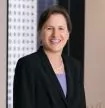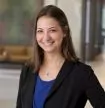The Second Circuit revived an FLSA collective action filed by Michael Lola, an attorney licensed to practice law in California, who for fifteen months performed document review services for Skadden Arps, Slate, Meagher & Flom LLP ("Skadden") though a staffing agency while living and working in North Carolina. Lola alleged that these services did not constitute the "practice of law," and that he was therefore eligible for overtime under the Fair Labor Standards Act. Rejecting Lola's arguments, a Southern District of New York judge dismissed the complaint on a Rule 12(b)(6) motion on the grounds that Lola was exempt from overtime. However, the Second Circuit held that when accepting all of Lola's allegations as true for purposes of a motion to dismiss, his work might not constitute the practice of law.
Like the lower court, the Second Circuit analyzed what it means to practice law under North Carolina law. However, unlike the district court, the Second Circuit concluded that document review does not necessarily constitute practicing law in North Carolina and that there must be a finding of "at least a modicum of independent legal judgment." Because Lola alleged that he exercised no legal judgment whatsoever but rather used criteria developed by others to simply sort documents into different categories and redact portions of documents based on specific protocols provided by others, the Second Circuit refused to dismiss the complaint and find Lola an exempt professional as a matter of law. The court concluded, based on "[a] fair reading of the complaint in the light most favorable to Lola [] that he provided services that a machine could have provided."
Although reversing the lower court, the Second Circuit's decision re-affirmed that the issue of what it means to practice law to qualify for the FLSA exemption is a state-specific inquiry. As such, while the case will now continue for Lola and Skadden, including a close examination of the document review work that Lola actually performed and whether in fact he exercised any legal judgment, the holding does not signify a new federal standard for determining whether an individual qualifies for the professional exemption based upon the practice of law.
The content of this article is intended to provide a general guide to the subject matter. Specialist advice should be sought about your specific circumstances.


